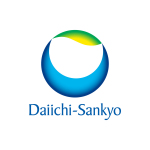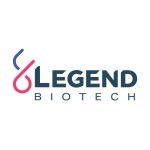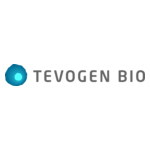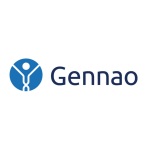First PARP Inhibitor to Demonstrate Clinical Benefit in Radiographic Progression-Free Survival in Combination With New Hormonal Agent in This Setting
KENILWORTH, N.J. — (BUSINESS WIRE) — $MRK #MRK–AstraZeneca and Merck (NYSE:MRK), known as MSD outside the United States and Canada, today announced positive results from the Phase 3 PROpel trial, in which LYNPARZA in combination with abiraterone and prednisone demonstrated a statistically significant and clinically meaningful improvement in the primary endpoint of radiographic progression-free survival (rPFS) versus abiraterone plus prednisone as a first-line treatment for men with metastatic castration-resistant prostate cancer (mCRPC) with or without homologous recombination repair (HRR) gene mutations.

At a planned interim analysis, the Independent Data Monitoring Committee concluded that the trial met the primary endpoint of rPFS in men with mCRPC who had not received treatment in the first-line setting, including new hormonal agents (NHAs) or chemotherapy. The trial also showed a trend at this interim analysis towards improved overall survival (OS). However, the OS data are still immature, and the trial will continue to assess OS as a key secondary endpoint. The safety and tolerability were consistent with the known profiles of each medicine and will continue to be assessed.
Globally, prostate cancer is the second most common cancer in men, with an estimated 1.4 million patients diagnosed worldwide in 2020. Approximately 10-20% of men with advanced prostate cancer are estimated to develop CRPC within five years, and at least 84% of these men may develop metastases at the time of CRPC diagnosis.
Susan Galbraith, executive vice president, oncology R&D, AstraZeneca, said, “Today, men with metastatic castration-resistant prostate cancer have limited options in the first-line setting, and sadly often the disease progresses after initial treatment with current standards of care. These exciting results demonstrate the potential for LYNPARZA with abiraterone to become a new first-line option for these patients regardless of their biomarker status and may help reach a broad population of patients living with this aggressive disease. We look forward to discussing the results with global health authorities as soon as possible.”
Roy Baynes, senior vice president and head of global clinical development, chief medical officer, Merck Research Laboratories, said, “We are encouraged by the PROpel results and the clinical benefit LYNPARZA in combination with abiraterone demonstrated versus abiraterone as a potential first-line treatment option for men with metastatic castration-resistant prostate cancer. These data build on Merck and AstraZeneca’s commitment to bring LYNPARZA to earlier lines of treatment and to more patients with advanced prostate cancer.”
The data will be presented at an upcoming medical meeting.
About PROpel
PROpel is a randomized, double-blind, multicenter Phase 3 trial testing the efficacy, safety and tolerability of LYNPARZA versus placebo when given in addition to abiraterone in men with mCRPC who had not received prior chemotherapy or NHAs in the first-line setting. Patients in both treatment groups also received either prednisone or prednisolone (5 mg twice daily). The primary endpoint is rPFS, and secondary endpoints include OS and time to first subsequent anticancer therapy or death.
The trial enrolled men with or without HRR gene mutations. They may have previously been treated with docetaxel at a prior stage of disease. The trial excluded men with prior treatment with abiraterone. Treatment with any other NHA must have been stopped one year or longer prior to randomization. Men must have an Eastern Cooperative Oncology Group (ECOG) performance status of 0-1 and be a candidate for abiraterone treatment with documented evidence of progressive disease.
IMPORTANT SAFETY INFORMATION
CONTRAINDICATIONS
There are no contraindications for LYNPARZA.
WARNINGS AND PRECAUTIONS
Myelodysplastic Syndrome/Acute Myeloid Leukemia (MDS/AML): Occurred in approximately 1.5% of patients exposed to LYNPARZA monotherapy, and the majority of events had a fatal outcome. The median duration of therapy in patients who developed MDS/AML was 2 years (range: <6 months to >10 years). All of these patients had previous chemotherapy with platinum agents and/or other DNA-damaging agents, including radiotherapy.
Do not start LYNPARZA until patients have recovered from hematological toxicity caused by previous chemotherapy (≤Grade 1). Monitor complete blood count for cytopenia at baseline and monthly thereafter for clinically significant changes during treatment. For prolonged hematological toxicities, interrupt LYNPARZA and monitor blood count weekly until recovery.
If the levels have not recovered to Grade 1 or less after 4 weeks, refer the patient to a hematologist for further investigations, including bone marrow analysis and blood sample for cytogenetics. Discontinue LYNPARZA if MDS/AML is confirmed.
Pneumonitis: Occurred in 0.8% of patients exposed to LYNPARZA monotherapy, and some cases were fatal. If patients present with new or worsening respiratory symptoms such as dyspnea, cough, and fever, or a radiological abnormality occurs, interrupt LYNPARZA treatment and initiate prompt investigation. Discontinue LYNPARZA if pneumonitis is confirmed and treat patient appropriately.
Embryo-Fetal Toxicity: Based on its mechanism of action and findings in animals, LYNPARZA can cause fetal harm. A pregnancy test is recommended for females of reproductive potential prior to initiating treatment.
Females
Advise females of reproductive potential of the potential risk to a fetus and to use effective contraception during treatment and for 6 months following the last dose.
Males
Advise male patients with female partners of reproductive potential or who are pregnant to use effective contraception during treatment and for 3 months following the last dose of LYNPARZA and to not donate sperm during this time.
Venous Thromboembolic Events: Including pulmonary embolism, occurred in 7% of patients with metastatic castration-resistant prostate cancer who received LYNPARZA plus androgen deprivation therapy (ADT) compared to 3.1% of patients receiving enzalutamide or abiraterone plus ADT in the PROfound study. Patients receiving LYNPARZA and ADT had a 6% incidence of pulmonary embolism compared to 0.8% of patients treated with ADT plus either enzalutamide or abiraterone. Monitor patients for signs and symptoms of venous thrombosis and pulmonary embolism, and treat as medically appropriate, which may include long-term anticoagulation as clinically indicated.
ADVERSE REACTIONS—First-Line Maintenance BRCAm Advanced Ovarian Cancer
Most common adverse reactions (Grades 1-4) in ≥10% of patients in clinical trials of LYNPARZA in the first-line maintenance setting for SOLO-1 were: nausea (77%), fatigue (67%), abdominal pain (45%), vomiting (40%), anemia (38%), diarrhea (37%), constipation (28%), upper respiratory tract infection/influenza/ nasopharyngitis/bronchitis (28%), dysgeusia (26%), decreased appetite (20%), dizziness (20%), neutropenia (17%), dyspepsia (17%), dyspnea (15%), leukopenia (13%), UTI (13%), thrombocytopenia (11%), and stomatitis (11%).
Most common laboratory abnormalities (Grades 1-4) in ≥25% of patients in clinical trials of LYNPARZA in the first-line maintenance setting for SOLO-1 were: decrease in hemoglobin (87%), increase in mean corpuscular volume (87%), decrease in leukocytes (70%), decrease in lymphocytes (67%), decrease in absolute neutrophil count (51%), decrease in platelets (35%), and increase in serum creatinine (34%).
ADVERSE REACTIONS—First-Line Maintenance Advanced Ovarian Cancer in Combination with Bevacizumab
Most common adverse reactions (Grades 1-4) in ≥10% of patients treated with LYNPARZA/bevacizumab compared to a ≥5% frequency for placebo/bevacizumab in the first-line maintenance setting for PAOLA-1 were: nausea (53%), fatigue (including asthenia) (53%), anemia (41%), lymphopenia (24%), vomiting (22%) and leukopenia (18%). In addition, the most common adverse reactions (≥10%) for patients receiving LYNPARZA/bevacizumab irrespective of the frequency compared with the placebo/bevacizumab arm were: diarrhea (18%), neutropenia (18%), urinary tract infection (15%) and headache (14%).
In addition, venous thromboembolic events occurred more commonly in patients receiving LYNPARZA/bevacizumab (5%) than in those receiving placebo/bevacizumab (1.9%).
Most common laboratory abnormalities (Grades 1-4) in ≥25% of patients for LYNPARZA in combination with bevacizumab in the first-line maintenance setting for PAOLA-1 were: decrease in hemoglobin (79%), decrease in lymphocytes (63%), increase in serum creatinine (61%), decrease in leukocytes (59%), decrease in absolute neutrophil count (35%) and decrease in platelets (35%).
ADVERSE REACTIONS—Maintenance Recurrent Ovarian Cancer
Most common adverse reactions (Grades 1-4) in ≥20% of patients in clinical trials of LYNPARZA in the maintenance setting for SOLO-2 were: nausea (76%), fatigue (including asthenia) (66%), anemia (44%), vomiting (37%), nasopharyngitis/upper respiratory tract infection (URI)/influenza (36%), diarrhea (33%), arthralgia/myalgia (30%), dysgeusia (27%), headache (26%), decreased appetite (22%), and stomatitis (20%).
Study 19: nausea (71%), fatigue (including asthenia) (63%), vomiting (35%), diarrhea (28%), anemia (23%), respiratory tract infection (22%), constipation (22%), headache (21%), decreased appetite (21%) and dyspepsia (20%).
Most common laboratory abnormalities (Grades 1-4) in ≥25% of patients in clinical trials of LYNPARZA in the maintenance setting (SOLO-2/Study 19) were: increase in mean corpuscular volume (89%/82%), decrease in hemoglobin (83%/82%), decrease in leukocytes (69%/58%), decrease in lymphocytes (67%/52%), decrease in absolute neutrophil count (51%/47%), increase in serum creatinine (44%/45%), and decrease in platelets (42%/36%).
ADVERSE REACTIONS—Advanced gBRCAm Ovarian Cancer
Most common adverse reactions (Grades 1-4) in ≥20% of patients in clinical trials of LYNPARZA for advanced gBRCAm ovarian cancer after 3 or more lines of chemotherapy (pooled from 6 studies) were: fatigue/asthenia (66%), nausea (64%), vomiting (43%), anemia (34%), diarrhea (31%), nasopharyngitis/upper respiratory tract infection (URI) (26%), dyspepsia (25%), myalgia (22%), decreased appetite (22%), and arthralgia/musculoskeletal pain (21%).
Most common laboratory abnormalities (Grades 1-4) in ≥25% of patients in clinical trials of LYNPARZA for advanced gBRCAm ovarian cancer (pooled from 6 studies) were: decrease in hemoglobin (90%), mean corpuscular volume elevation (57%), decrease in lymphocytes (56%), increase in serum creatinine (30%), decrease in platelets (30%), and decrease in absolute neutrophil count (25%).
ADVERSE REACTIONS—gBRCAm, HER2-Negative Metastatic Breast Cancer
Most common adverse reactions (Grades 1-4) in ≥20% of patients in OlympiAD were: nausea (58%), anemia (40%), fatigue (including asthenia) (37%), vomiting (30%), neutropenia (27%), respiratory tract infection (27%), leukopenia (25%), diarrhea (21%), and headache (20%).
Most common laboratory abnormalities (Grades 1-4) in >25% of patients in OlympiAD were: decrease in hemoglobin (82%), decrease in lymphocytes (73%), decrease in leukocytes (71%), increase in mean corpuscular volume (71%), decrease in absolute neutrophil count (46%), and decrease in platelets (33%).
ADVERSE REACTIONS—First-Line Maintenance gBRCAm Metastatic Pancreatic Adenocarcinoma
Most common adverse reactions (Grades 1-4) in ≥10% of patients in clinical trials of LYNPARZA in the first-line maintenance setting for POLO were: fatigue (60%), nausea (45%), abdominal pain (34%), diarrhea (29%), anemia (27%), decreased appetite (25%), constipation (23%), vomiting (20%), back pain (19%), arthralgia (15%), rash (15%), thrombocytopenia (14%), dyspnea (13%), neutropenia (12%), nasopharyngitis (12%), dysgeusia (11%), and stomatitis (10%).
Most common laboratory abnormalities (Grades 1-4) in ≥25% of patients in clinical trials of LYNPARZA in the first-line maintenance setting for POLO were: increase in serum creatinine (99%), decrease in hemoglobin (86%), increase in mean corpuscular volume (71%), decrease in lymphocytes (61%), decrease in platelets (56%), decrease in leukocytes (50%), and decrease in absolute neutrophil count (25%).
ADVERSE REACTIONS—HRR Gene-mutated Metastatic Castration Resistant Prostate Cancer
Most common adverse reactions (Grades 1-4) in ≥10% of patients in clinical trials of LYNPARZA for PROfound were: anemia (46%), fatigue (including asthenia) (41%), nausea (41%), decreased appetite (30%), diarrhea (21%), vomiting (18%), thrombocytopenia (12%), cough (11%), and dyspnea (10%).
Most common laboratory abnormalities (Grades 1-4) in ≥25% of patients in clinical trials of LYNPARZA for PROfound were: decrease in hemoglobin (98%), decrease in lymphocytes (62%), decrease in leukocytes (53%), and decrease in absolute neutrophil count (34%).
DRUG INTERACTIONS
Anticancer Agents: Clinical studies of LYNPARZA with other myelosuppressive anticancer agents, including DNA-damaging agents, indicate a potentiation and prolongation of myelosuppressive toxicity.
CYP3A Inhibitors: Avoid coadministration of strong or moderate CYP3A inhibitors when using LYNPARZA. If a strong or moderate CYP3A inhibitor must be coadministered, reduce the dose of LYNPARZA. Advise patients to avoid grapefruit, grapefruit juice, Seville oranges, and Seville orange juice during LYNPARZA treatment.
CYP3A Inducers: Avoid coadministration of strong or moderate CYP3A inducers when using LYNPARZA.
USE IN SPECIFIC POPULATIONS
Lactation: No data are available regarding the presence of olaparib in human milk, its effects on the breastfed infant or on milk production. Because of the potential for serious adverse reactions in the breastfed infant, advise a lactating woman not to breastfeed during treatment with LYNPARZA and for 1 month after receiving the final dose.
Pediatric Use: The safety and efficacy of LYNPARZA have not been established in pediatric patients.
Hepatic Impairment: No adjustment to the starting dose is required in patients with mild or moderate hepatic impairment (Child-Pugh classification A and B). There are no data in patients with severe hepatic impairment (Child-Pugh classification C).
Renal Impairment: No dosage modification is recommended in patients with mild renal impairment (CLcr 51-80 mL/min estimated by Cockcroft-Gault). In patients with moderate renal impairment (CLcr 31-50 mL/min), reduce the dose of LYNPARZA to 200 mg twice daily. There are no data in patients with severe renal impairment or end-stage renal disease (CLcr ≤30 mL/min).
INDICATIONS for LYNPARZA in the United States
LYNPARZA is a poly (ADP-ribose) polymerase (PARP) inhibitor indicated:
First-Line Maintenance BRCAm Advanced Ovarian Cancer
For the maintenance treatment of adult patients with deleterious or suspected deleterious germline or somatic BRCA-mutated (gBRCAm or sBRCAm) advanced epithelial ovarian, fallopian tube or primary peritoneal cancer who are in complete or partial response to first-line platinum-based chemotherapy. Select patients for therapy based on an FDA-approved companion diagnostic for LYNPARZA.
First-Line Maintenance HRD-Positive Advanced Ovarian Cancer in Combination with Bevacizumab
In combination with bevacizumab for the maintenance treatment of adult patients with advanced epithelial ovarian, fallopian tube or primary peritoneal cancer who are in complete or partial response to first-line platinum-based chemotherapy and whose cancer is associated with homologous recombination deficiency (HRD) positive status defined by either:
- a deleterious or suspected deleterious BRCA mutation and/or
- genomic instability
Select patients for therapy based on an FDA-approved companion diagnostic for LYNPARZA.
Maintenance Recurrent Ovarian Cancer
For the maintenance treatment of adult patients with recurrent epithelial ovarian, fallopian tube or primary peritoneal cancer, who are in complete or partial response to platinum-based chemotherapy.
Advanced gBRCAm Ovarian Cancer
For the treatment of adult patients with deleterious or suspected deleterious germline BRCA-mutated (gBRCAm) advanced ovarian cancer who have been treated with 3 or more prior lines of chemotherapy. Select patients for therapy based on an FDA-approved companion diagnostic for LYNPARZA.
gBRCAm HER2-Negative Metastatic Breast Cancer
For the treatment of adult patients with deleterious or suspected deleterious gBRCAm, human epidermal growth factor receptor 2 (HER2)-negative metastatic breast cancer, who have been treated with chemotherapy in the neoadjuvant, adjuvant or metastatic setting. Patients with hormone receptor (HR)-positive breast cancer should have been treated with a prior endocrine therapy or be considered inappropriate for endocrine therapy. Select patients for therapy based on an FDA-approved companion diagnostic for LYNPARZA.
First-Line Maintenance gBRCAm Metastatic Pancreatic Cancer
For the maintenance treatment of adult patients with deleterious or suspected deleterious gBRCAm metastatic pancreatic adenocarcinoma whose disease has not progressed on at least 16 weeks of a first-line platinum-based chemotherapy regimen. Select patients for therapy based on an FDA-approved companion diagnostic for LYNPARZA.
HRR Gene-mutated Metastatic Castration Resistant Prostate Cancer
For the treatment of adult patients with deleterious or suspected deleterious germline or somatic homologous recombination repair (HRR) gene-mutated metastatic castration-resistant prostate cancer (mCRPC) who have progressed following prior treatment with enzalutamide or abiraterone. Select patients for therapy based on an FDA-approved companion diagnostic for LYNPARZA.
Please click here for complete Prescribing Information, including Patient Information (Medication Guide).
About LYNPARZA® (olaparib)
LYNPARZA is a first-in-class PARP inhibitor and the first targeted treatment to potentially exploit DNA damage response (DDR) pathway deficiencies, such as BRCA mutations, to preferentially kill cancer cells. Inhibition of PARP with LYNPARZA leads to the trapping of PARP bound to DNA single-strand breaks, stalling of replication forks, their collapse and the generation of DNA double-strand breaks and cancer cell death. LYNPARZA is being tested in a range of tumor types with defects and dependencies in the DDR.
LYNPARZA, which is being jointly developed and commercialized by AstraZeneca and Merck, has a broad and advanced clinical trial development program, and AstraZeneca and Merck are working together to understand how it may affect multiple PARP-dependent tumors as a monotherapy and in combination across multiple cancer types.
About Metastatic Castration-Resistant Prostate Cancer
Prostate cancer is the second most common cancer in men and is associated with a significant mortality rate. Development of prostate cancer is often driven by male sex hormones called androgens, including testosterone. In patients with mCRPC, their prostate cancer grows and spreads to other parts of the body, despite the use of androgen-deprivation therapy to block the action of male sex hormones. Approximately 10-20% of men with advanced prostate cancer are estimated to develop CRPC within five years, and at least 84% of these men may develop metastases at the time of CRPC diagnosis. Of men with no metastases at CRPC diagnosis, 33% are likely to develop metastases within two years.
About the AstraZeneca and Merck Strategic Oncology Collaboration
In July 2017, AstraZeneca and Merck, known as MSD outside the United States and Canada, announced a global strategic oncology collaboration to co-develop and co-commercialize certain oncology products including LYNPARZA, the world’s first PARP inhibitor, for multiple cancer types. Working together, the companies will develop these products in combination with other potential new medicines and as monotherapies. Independently, the companies will develop these oncology products in combination with their respective PD-L1 and PD-1 medicines.
Merck’s Focus on Cancer
Our goal is to translate breakthrough science into innovative oncology medicines to help people with cancer worldwide. At Merck, the potential to bring new hope to people with cancer drives our purpose and supporting accessibility to our cancer medicines is our commitment. As part of our focus on cancer, Merck is committed to exploring the potential of immuno-oncology with one of the largest development programs in the industry across more than 30 tumor types. We also continue to strengthen our portfolio through strategic acquisitions and are prioritizing the development of several promising oncology candidates with the potential to improve the treatment of advanced cancers. For more information about our oncology clinical trials, visit www.merck.com/clinicaltrials.
About Merck
For over 130 years, Merck, known as MSD outside of the United States and Canada, has been inventing for life, bringing forward medicines and vaccines for many of the world’s most challenging diseases in pursuit of our mission to save and improve lives. We demonstrate our commitment to patients and population health by increasing access to health care through far-reaching policies, programs and partnerships. Today, Merck continues to be at the forefront of research to prevent and treat diseases that threaten people and animals – including cancer, infectious diseases such as HIV and Ebola, and emerging animal diseases – as we aspire to be the premier research-intensive biopharmaceutical company in the world. For more information, visit www.merck.com and connect with us on Twitter, Facebook, Instagram, YouTube and LinkedIn.
Forward-Looking Statement of Merck & Co., Inc., Kenilworth, N.J., USA
This news release of Merck & Co., Inc., Kenilworth, N.J., USA (the “company”) includes “forward-looking statements” within the meaning of the safe harbor provisions of the U.S. Private Securities Litigation Reform Act of 1995. These statements are based upon the current beliefs and expectations of the company’s management and are subject to significant risks and uncertainties. There can be no guarantees with respect to pipeline products that the products will receive the necessary regulatory approvals or that they will prove to be commercially successful. If underlying assumptions prove inaccurate or risks or uncertainties materialize, actual results may differ materially from those set forth in the forward-looking statements.
Risks and uncertainties include but are not limited to, general industry conditions and competition; general economic factors, including interest rate and currency exchange rate fluctuations; the impact of the global outbreak of novel coronavirus disease (COVID-19); the impact of pharmaceutical industry regulation and health care legislation in the United States and internationally; global trends toward health care cost containment; technological advances, new products and patents attained by competitors; challenges inherent in new product development, including obtaining regulatory approval; the company’s ability to accurately predict future market conditions; manufacturing difficulties or delays; financial instability of international economies and sovereign risk; dependence on the effectiveness of the company’s patents and other protections for innovative products; and the exposure to litigation, including patent litigation, and/or regulatory actions.
Contacts
Media:
Melissa Moody
(215) 407-3536
Justine Moore
(908) 740-6449
Investors:
Peter Dannenbaum
(908) 740-1037
Raychel Kruper
(908) 740-2107
Read full story here









 and commercializing novel solutions that treat specialty cancers and urologic diseases, today announced that it will present at the H.C. Wainwright 23rd Annual Global Investment Conference. The presentation will be available on-demand via the conference portal and through the Investors section of UroGen’s website,
and commercializing novel solutions that treat specialty cancers and urologic diseases, today announced that it will present at the H.C. Wainwright 23rd Annual Global Investment Conference. The presentation will be available on-demand via the conference portal and through the Investors section of UroGen’s website, 
